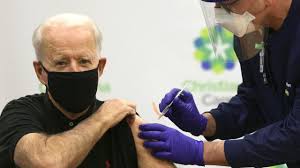WALLACE: Let's talk about this, the White House basically calls this an infrastructure bill, and yes, there are hundreds of billions of dollars for roads and highways and bridges and for some other things I think you can argue our infrastructure like expanding broadband. But there are also some other parts of this bill, and I want to put them up: $213 billion for housing, $400 billion for taking care of the elderly and disabled. Brian, those may well be worthy projects, but they're not infrastructure.
DEESE: Well, look, I think we really need to update what we mean by infrastructure for the 21st century. If you look at that number on housing, what we're talking about is construction, building housing all along the country to help make sure that there are more affordable housing units for people to access jobs and access economic opportunities. We're talking about construction to build things like V.A. facilities, our schools, and community colleges, putting people to work, construction work that really needs to be done to be commitments that we have to our veterans and others.We believe that the infrastructure of our care economy is something we have to take very seriously. If anybody out there, many of your viewers who are parents, who are taking care of an elderly parent or an adult child with disabilities, they know that if you don't have an infrastructure of care to support your loved ones, you can't effectively work. You can't effectively interact in the 21st century economy.So, I think investing in the infrastructure of care --

WALLACE: Brian, I'm not going to argue about whether or not it's a worthy project, but the infrastructure of care, you're really stretching the word beyond all meaning. What you're doing is you're going pay people to take care of the elderly and disabled. I mean, it's a social program.
DEESE: Well, we're going to invest in building child care facilities. We're going to invest in upgrading home and community-based care facilities. We're going to invest in our V.A. hospitals.We're going to invest in putting people to work, building and addressing deferred maintenance and addressing the lack of access to this type of care that keeps parents from being able to work, that keeps families from being able to work. That will create more jobs. It will create more opportunity for people to get into the workforce. It will expand our economy's potential.
译文由可可原创,仅供学习交流使用,未经许可请勿转载。












